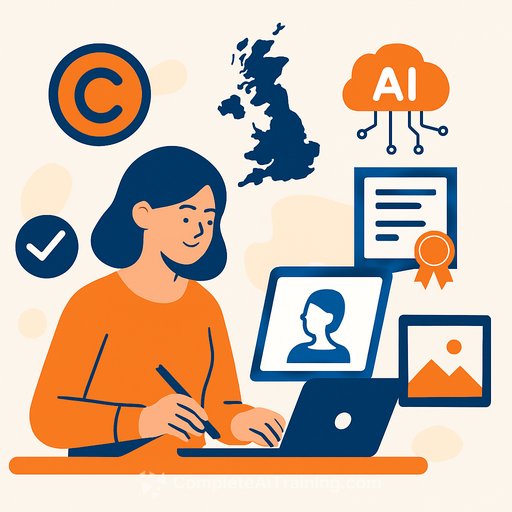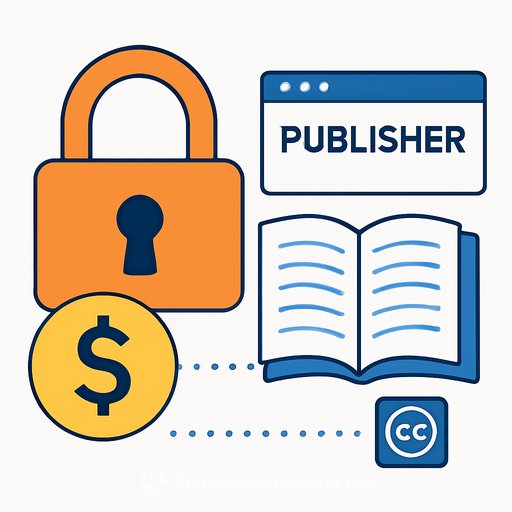Find creative answers to copyright challenges
AI can imitate styles in seconds. That's exciting for production speed-and worrying for ownership. The UK can set the pace with policies that back creators and still keep innovation moving.
We have the ingredients: world-class research, strong venture support, and a creative sector that adds over £100bn in value. The missing piece is a clear framework that respects creative work while supporting responsible AI.
Why this matters to creatives
AI clears busywork so you can focus on ideas. But it also raises three risks you've flagged: style imitation, copyright misuse, and loss of control. These aren't abstract-they affect pricing, client trust, and your brand.
The fix is a mix of standards, product choices, and law. The UK can lead by setting clear rules and adopting tools that make consent visible and enforceable.
Protect the input: your consent, your call
Creators need a simple, universal way to say "train on this" or "don't." Content Credentials act like a nutrition label for digital work: who made it, when, and what was edited-plus a signal on whether it can be used to train AI.
Built on the open standard from the Coalition for Content Provenance and Authenticity (C2PA), this approach lets you disclose process and set boundaries in machine-readable form. That matters for audits, clients, and licensing at scale.
Learn more about the C2PA standard
Protect the output: stop AI style impersonation
Your style is a signature. Bad actors can aim AI at your portfolio and sell look-alike work without consent. That's not inspiration-it's impersonation.
Policy can fix this. An anti-impersonation right would give creators a way to act against deliberate, commercial imitation via AI tools. Similar ideas are progressing in the US; the UK can move fast and give creators a clear right of action.
Authenticity beats deepfakes
Synthetic media is flooding feeds. Public figures, journalists, and brands are prime targets. Audiences need fast ways to judge what's real.
Content Credentials add context to files so viewers can verify origin and edits. This can help newsrooms, public bodies, and platforms reduce confusion and rebuild trust-especially if government uses the same standard on official content.
What the UK government can do now
- Back industry-wide adoption of Content Credentials so creator preferences are visible and enforceable across tools.
- Require AI developers to honour machine-readable reservations of rights, in line with emerging international practice.
- Introduce a clear right against AI-driven style impersonation with swift remedies.
- Use Content Credentials on government communications to set the standard for authenticity.
What creatives can do this week
- Publish with Content Credentials and set your training preference to "do not train" where desired.
- State AI usage terms in your licenses and contracts (training permission, attribution, and resale rules).
- Monitor marketplace listings for style clones; document and report repeat offenders.
- Choose tools that are commercially safe and respect opt-outs; ask vendors how they handle training data.
Why industry standards matter
Standards reduce guesswork. They create a common language for consent, attribution, and provenance. They also make enforcement realistic by turning preferences into signals machines can read and platforms can honour.
This foundation can support new licensing models-simpler attribution, clearer rights, and easier monetisation for digital work at scale.
Keep learning and leveling up
If you want a shortlist of practical tools for visual work, explore this curated set of AI options for art and design workflows:
Popular AI tools for generative art
The moment to act
AI is moving fast. The UK has the resources and ambition to lead, but it takes clear rules, responsible tools, and real protections for the people who make the culture everyone enjoys.
Back standards that respect consent. Push for anti-impersonation rights. Use authenticity tools by default. That mix keeps creativity thriving-and keeps creators in control.
Your membership also unlocks:






